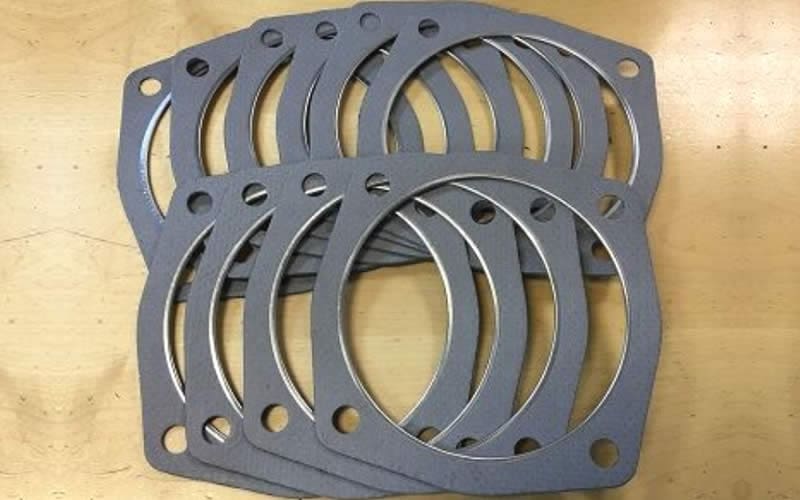Summary. Gaskets and seals, while similar in function, have distinct differences. Seals are used between moving parts like engines and shafts to prevent leaks, while gaskets fill gaps between static surfaces or flanges. Seals are dynamic, covering a range of components, whereas gaskets are versatile, used in various industries and made from materials like rubber and steel. Gaskets need replacing during machine reassembly, whereas seals require replacement when worn.
When you are looking at gaskets and seals, you may initially think they are the same thing. This is because they are often shown to be serving in the same role. However, although they share some similarities, there are some key differences. These must be considered when determining whether a gasket or a seal is right for your project. Here are the first core differences:
- A seal is used between engine parts, motors, and rotating blands to seal a link.
- A gasket is used to fill the gap between two elements or flanges that have flat surfaces that do not quite seal perfectly
What Is A Seal?
Seals often cover a larger category of components such as o-rings, rotary seals, valve seals, and mechanical seals. While gaskets are mainly used for static purposes, however, seals can be used in many more dynamic applications. For instance, rotary shafts, motors, valves, and engines. They are smooth and circular, and have a metal outer ring that surrounds a tilted inner rubber ring. The tilted part of the layer supports with the avoidance of leakage in certain applications. Seals are mostly used to prevent leakage between two moving components. In addition, they are there to ensure that entry points are blocked off in order to prevent debris and chemicals entering a device.
Using A Seal
A key application for seals is helping to avoid leaks from taking place at the end of a shaft. Shafts will emerge from the covering and sealing of hydraulic tracks. Therefore, a form of seal will usually be in place to prevent the leakage from taking place. Seals may also be used in bearings and are usually in the form of a ball bearing enclosed by a rubber shield. This prevents leakage from happening and will also act as a noise reduction component too.
When Should A Seal Be Replaced?
When a seal wears down, the entire bearing must be replaced as opposed to just the seal component.
What Is A Gasket?
A gasket is a type of component that fills or covers the junction of two surfaces. Typically made from durable materials such as rubber, cork, copper, or stainless steel. Gaskets are incredibly versatile and therefore can be used across a variety of surfaces and applications. They can provide support with many different purposes too, some of which show how gaskets are similar to seals. For instance, grooming, noise control, packing, anti-vibration, and most importantly, sealing.
Gaskets are used across lots of different industries for instance using gaskets in a car. However, there are many more such as, food manufacturing, petrochemicals, water, oil and gas, and pharmaceuticals. Their materials are chosen based on their qualities, properties, and ability to withstand certain conditions. For example extreme temperatures, liquid or chemical exposure, and oxidisation.
How Do Gaskets Work?
For a gasket to work well and seal gaps, it has to be sealed securely to create an entire barrier. This is why accurate measurements are pivotal in creating the right gasket for the job. Gaskets also shield moving parts of a device by preventing them from grinding against each other or other hard surfaces, which can cause friction and thus lead to wear and tear. As a gasket occupies the gap between two sides, the gasket material has to be appropriate for the environment it is going to be used in.
When Should A Gasket Be Replaced?
Gaskets should ideally be replaced each time the machine itself is being taken apart and reassembled. When this happens, it is ideal to install a new gasket at the same time.
Gasket Manufacturers
Stephens Gaskets are proud to be leading gasket manufacturers. We offer precision machined gaskets in a wide range of sizes, thicknesses, and materials. For more information on our gaskets, please call 0121 544 5808 to speak to a member of our helpful and friendly team.
If you have found this blog helpful, you may wish to read our previous blog on PTFE gasket material.

